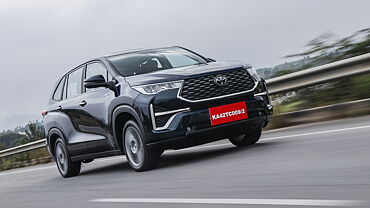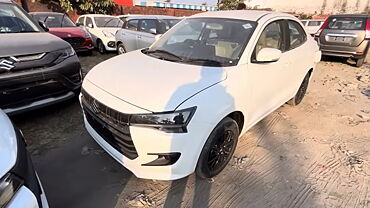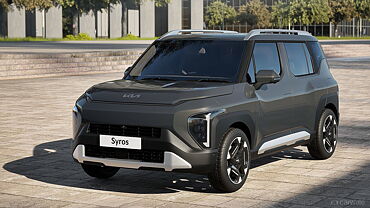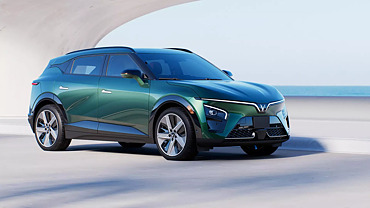
- Powered by a 2.0-litre, four-cylinder petrol engine
- Available in G and GX variants
The Toyota Innova Hycross comes with two powertrain options. The 2.0-litre petrol engine develops 172bhp and 188Nm of torque in the petrol-only version, whereas the hybrid gets a 2.0-litre unit with an electric system that makes 11bhp and 206Nm of torque. Both engine options are paired to CVT and e-CVT units, respectively. We have tested the petrol-only version of the Innova Hycross for its performance and here are the real-world figures.
To make things interesting, we also seated six people in the car and tested it again to see how much of a difference around 400kg of added weight can make to the performance of the Innova Hycross.

Innova Hycross performance with a single person
Having a big engine has its positives when driving in the city or on the highway. Be it merging onto a main road in the city or overtaking a slower vehicle at highway speeds, the Innova Hycross does it fairly well. In our 0-60kmph and 0-100kmph tests, the big MPV posted a time of 5.93 seconds and 11.95 seconds, respectively. Meanwhile, the non-hybrid Hycross did well in our roll-on acceleration tests. It managed the 20-80kmph sprint in 7.42 seconds and 40-100kmph in 9.62 seconds.

Innova Hycross performance with 6 people
Now here comes the interesting part. We conducted the same tests again but with six people onboard. Thus, the Innova Hycross had to lug approximately 400kg of additional weight this time around. Naturally, it was slower but I have to say that the timings that it posted were quite surprising. In fact, there isn’t a significant difference in performance. The Hycross was a tad slower going from a standstill to 60kmph and 100kmph, having completed the sprint in 6.85 seconds and 13.91 seconds, respectively. It’s equally impressive when we bring roll-on acceleration into the picture – 20-80kmph took 8.08 seconds, which is just half a second slower than the original time. Lastly, 40-100kmph was dispatched in 10.45 seconds, resulting in a difference of just 0.8 seconds.


















































